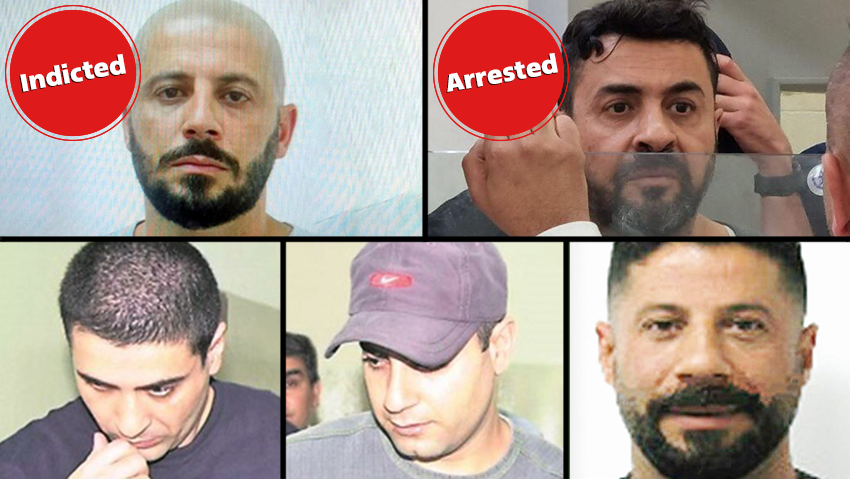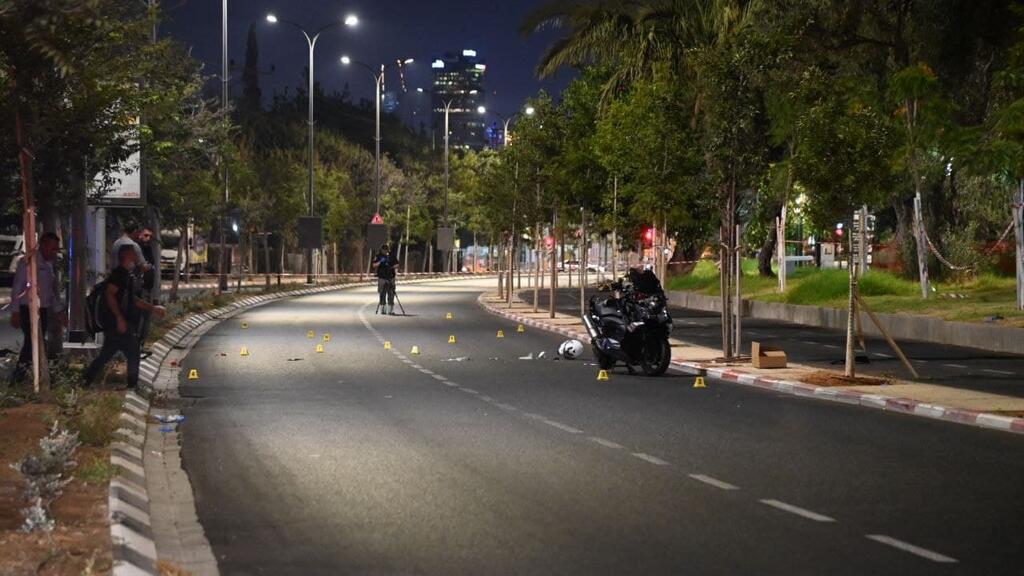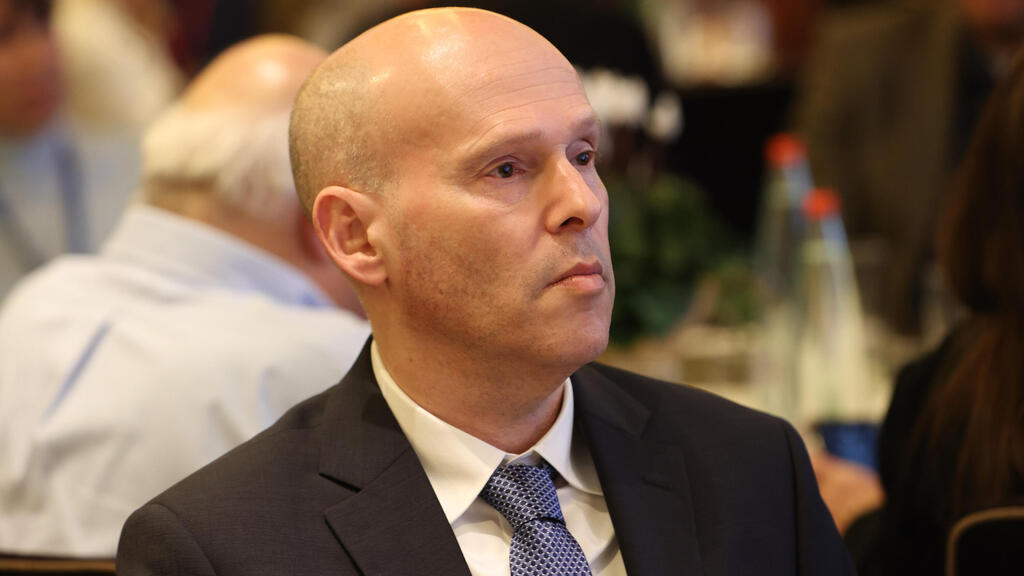When the police obtain strong evidence against a senior criminal in a major crime organization, it is reasonable to assume that the outcome will involve a significant punishment. However, it turns out that due to a series of systematic failures along the way, this expected scenario does not materialize in many cases.
Read More:
For example, in the case of bringing Khaled Abu Latif to trial. Despite substantial evidence against one of the senior criminals in the Abu Latif crime family, considered one of the major crime instigators in Israel, the state attorney refused to file an indictment against him for extortion under threats, and once again left the task in the hands of the police's Lahav 433 Unit.
Since only the state attorney can appeal to the district court, where more severe charges and heavier punishments can be argued, this led to the filing of the indictment in the Magistrate's Court in Hadera. As a result, there was a reduction in the charges and a reduced punishment in relation to the severity of the original offense.
This indictment, filed last September by the police, proposes claims against Khaled Abu Latif, William Liyous, and Mohammed Mana'a, apparent associates in the Abu Latif crime syndicate and accomplices of Khaled in the extortion under threats.
In the original indictment, the police claimed stated that "Khaled Abu Latif is a member of the Abu Latif family, who acts on behalf of the family in violent events, shooting incidents, and extortion of protection money."
However, due to a lack of support from the state attorney in the case, the police court was forced to erase this significant chunk from the indictment that speaks of the Abu Latif crime organization and Khaled's role in the criminal organization.
The indictment describes how Abu Latif and the two other defendants extorted money from a normal uninvolved person by threats. The victim, a private pharmacist, was approached and told that he owed them 800,000 shekels.
"Someone from the village called me and claimed that I owed him 800,000 shekels that I needed to pay," said the pharmacist. "I didn't understand what he was talking about. I don't owe money to anyone. It's not his business, and he said I had to appear before a committee in front of Khaled Abu Latif. He told me, 'If you don't come, there are consequences.'"
The indictment describes the incident in which the pharmacist met Khaled Abu Latif in the northern Arab village of Rameh, where he was informed that he had to pay the debt. After this meeting, Khaled Abu Latif requested another meeting with the pharmacist, but this time the pharmacist was apprehensive and stated that he would not attend the meeting.
The pharmacist also mentioned that a few days later, shots were fired at his brother's car. "Luckily, they missed due to a malfunction in the firearm," he said. "It was then that I turned to the police."
3 View gallery


The Abu Latif brothers, from top left: Nidal and Latif; Bottom left: Alaa, Louis, and Suliman
(Photo: Israel Police, Roni Schnitzer)
Nonetheless, the violence did not end there. The pharmacist told Ynet and "Yedioth Ahronoth" in an interview that two grenades were thrown into his house while he and his children were inside. Eventually, he was forced to meet with Khaled Abu Latif once again, where he attempted to extort him and demanded payment for a debt that, according to the pharmacist, did not exist. The police recognized the severity of the case and transferred the investigation to the department in Lahav 433 that combats economic crimes.
In similar cases, the police often encounter difficulties when the victims refuse to file a complaint and cooperate with the police. However, in this case, the pharmacist voluntarily filed a complaint and fully cooperated with the investigation team, providing significant evidence against Abu Latif and the other defendants in the form of text messages and voice messages.
Despite all of this, the state attorney inexplicably refused to handle the case and left the filing of the indictment in the hands of a police plaintiff, whose authority is limited to filing an indictment with the Magistrate's Court, resulting in minor punishment compared to the severity of the offense.
Last January, Abu Latif was sentenced to ten months of imprisonment, and three years of six months of probation with a condition of 8,300 compensation to the complainant. If this case had been handled by the state attorney, it would have been submitted to the District Court, automatically leading to a more significant punishment.
Passing the buck to subordinate authorities
In the midst of the rampant crime plaguing the streets, Israel is approaching the threshold of 100 murders in Israeli society this year. During this time, in the state attorney, under the leadership of Attorney Amit Aisman and Deputy Attorney General for Criminal Affairs Shlomo (Momi) Lemberger, the appropriate response is being evaded, and the state attorney and police pass the buck from one to another. The dysfunctional handling of the issue leads to significant systematic failures that only encourage criminal organizations.
In order to dismantle criminal organizations and imprison the offenders, there needs to be a unit within the state attorney that will be focused on handling and filing indictments in cases involving criminal organizations. Currently, there is no such mechanism within the state attorney, which leads to the dispersal of cases by various plaintiffs, some of whom are, as mentioned, police plaintiffs.
Even in the current state attorney offices, there is a lack of manpower and an overload of cases, and the priorities are clearly miscalculated as civilians continue to be murdered and extorted by criminal organizations. When young offenders at the beginning of their criminal careers see that there is no "adult in charge" dealing with offenders firmly and the punishment is lenient, the passage to the next murder becomes shorter and simpler.
High threat, low security
"Up until a month ago, I was regarded by the Israeli police as a grade 6 threatened person, which is the highest level of threat," said an individual who experienced firsthand the terror of criminal organizations. "Myself, my wife, and my children had armed guards with us 24 hours a day. Even now, I am protected, but to a lesser extent. What kind of life is this?" he asked.
"One of my sons is studying at the Technion, and the other is studying at Reichman University in Herzliya, and instead of focusing on their studies, they have to deal with threats. It's impossible to live like this," he explained, adding with anger and disappointment that "instead of Minister Ben Gvir and Arab Knesset members debating nonsense, they should take action and make a difference. Such a case should be handled by the police and the court system. It's a joke and the punishments are too lenient."
In response to the accusation, the State Attorney's Office stated: "The allegation is baseless. This is a case that was transferred for examination by the Haifa prosecution office, even before the arrest of Khaled Abu Latif. In the investigative material collected by the Israeli police up until now, sufficient evidence for filing an indictment was not found.
At a certain stage, the investigating unit transferred the case for handling by the Israeli police unit, without further examination by the state attorney's office and without receiving its response. Therefore, any question regarding the offenses attributed and the punishments imposed should be directed to the Israeli police."



